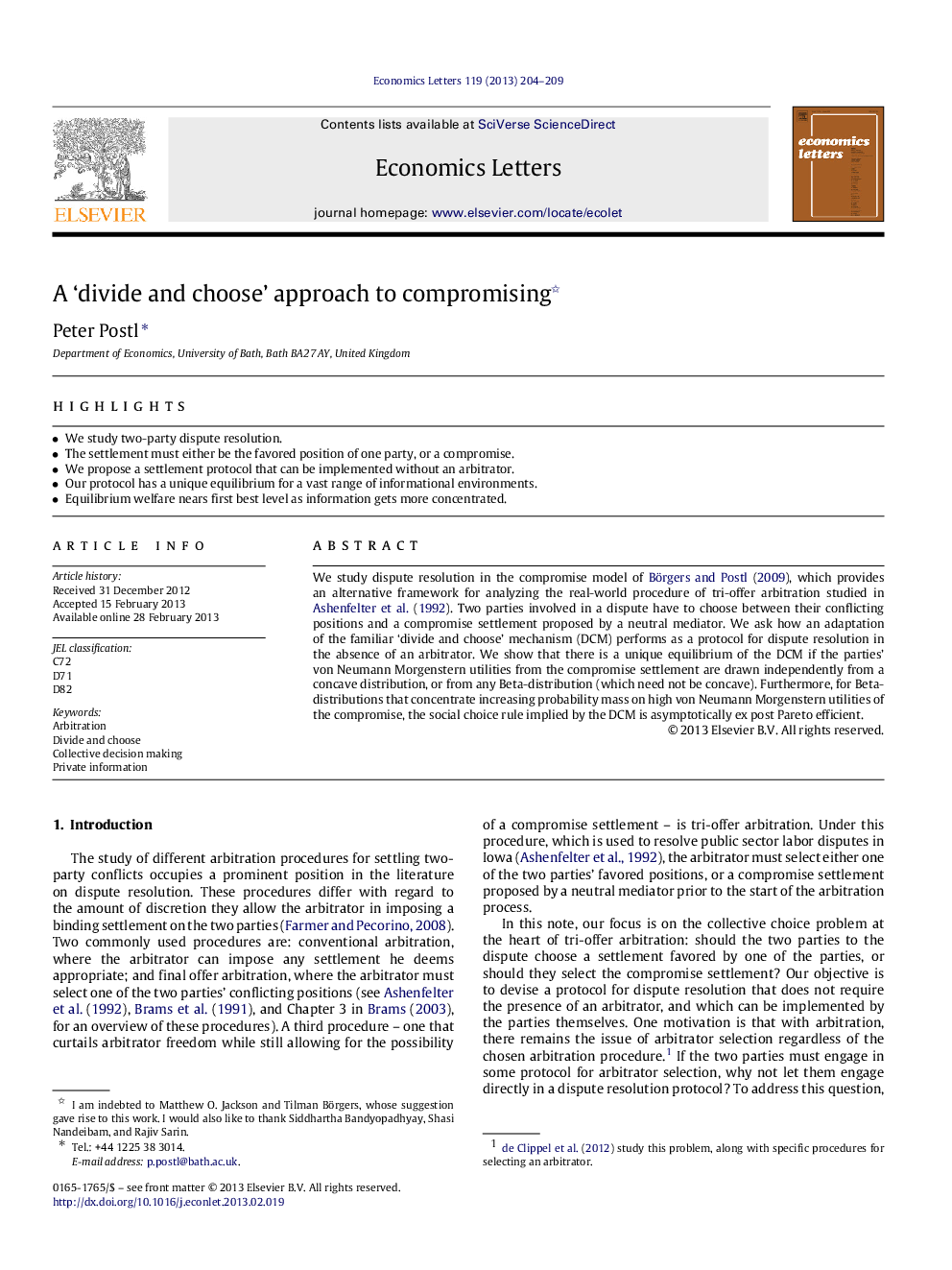| Article ID | Journal | Published Year | Pages | File Type |
|---|---|---|---|---|
| 5059605 | Economics Letters | 2013 | 6 Pages |
Abstract
We study dispute resolution in the compromise model of Börgers and Postl (2009), which provides an alternative framework for analyzing the real-world procedure of tri-offer arbitration studied in Ashenfelter et al. (1992). Two parties involved in a dispute have to choose between their conflicting positions and a compromise settlement proposed by a neutral mediator. We ask how an adaptation of the familiar 'divide and choose' mechanism (DCM) performs as a protocol for dispute resolution in the absence of an arbitrator. We show that there is a unique equilibrium of the DCM if the parties' von Neumann Morgenstern utilities from the compromise settlement are drawn independently from a concave distribution, or from any Beta-distribution (which need not be concave). Furthermore, for Beta-distributions that concentrate increasing probability mass on high von Neumann Morgenstern utilities of the compromise, the social choice rule implied by the DCM is asymptotically ex post Pareto efficient.
Related Topics
Social Sciences and Humanities
Economics, Econometrics and Finance
Economics and Econometrics
Authors
Peter Postl,
